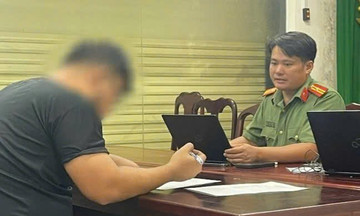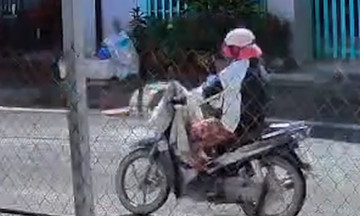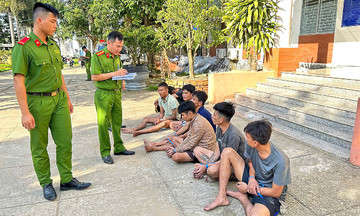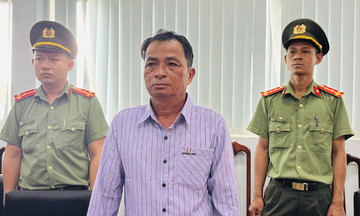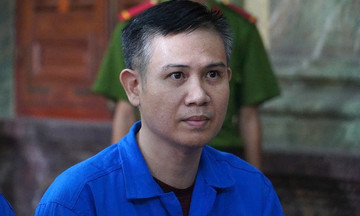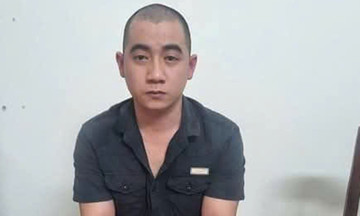The Ho Chi Minh City People’s Court is currently trying the case of 4 prime properties in Saigon Ward (Ben Nghe, former District 1), owned by the State and managed by Vinafood II, which were illegally transferred to private hands, causing a loss of 970 billion VND.
Hoang Ngoc Cam Hong, a Vietnamese expat from Canada and cousin of Dinh Truong Chinh (51, former chairman of the Board of Directors of Housing Development and Trading Joint Stock Company - HDTC), was allegedly brought back to Vietnam as part of Chinh's "premeditated plan". The prosecution alleges she was used to conceal the sale of the 4 prime properties, resulting in an illicit profit of 970 billion VND.
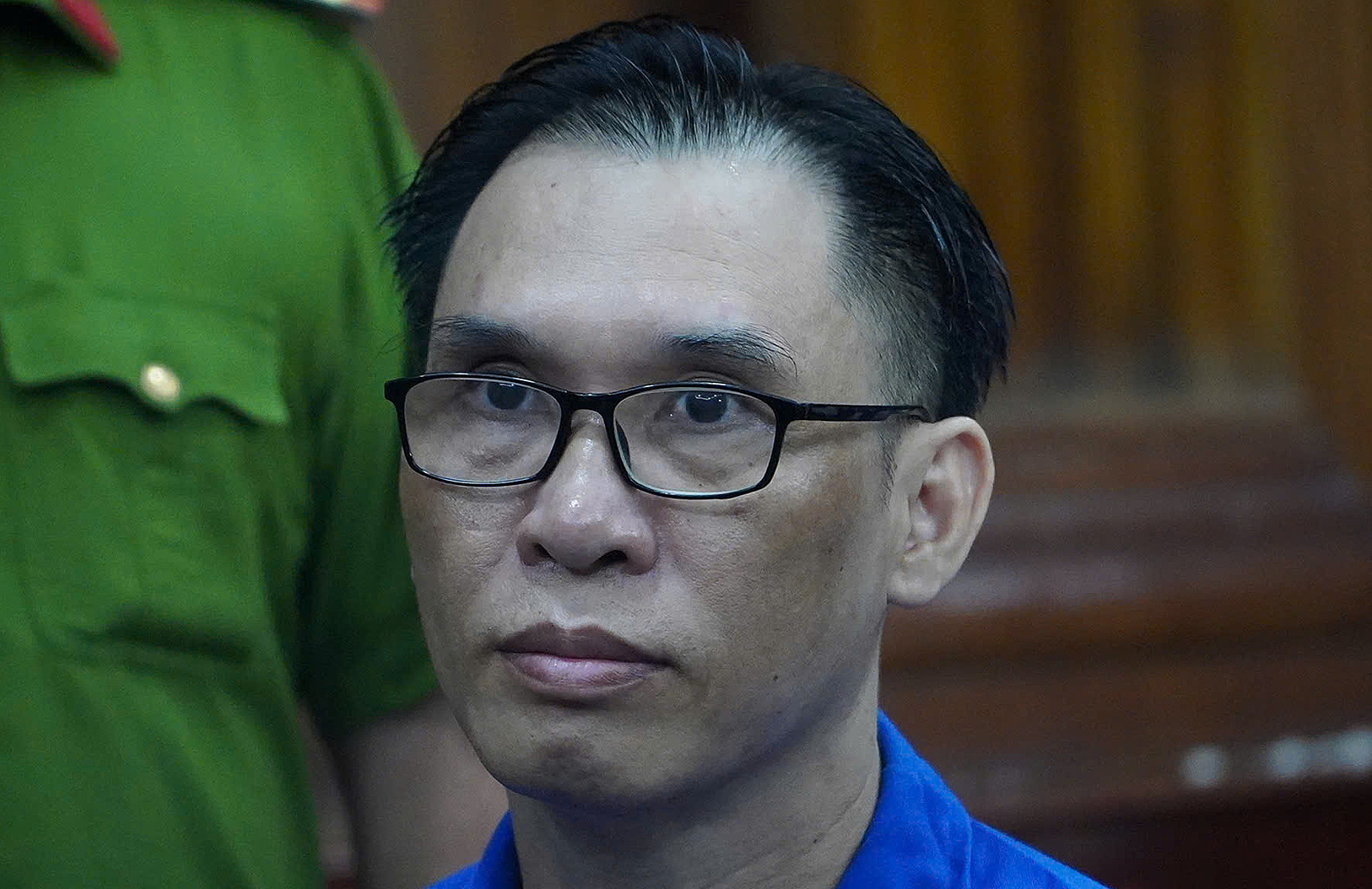 |
Defendant Dinh Truong Chinh at the trial. Photo: Hai Duyen |
Defendant Dinh Truong Chinh at the trial. Photo: Hai Duyen
Chinh, known in the business world as a "real estate M&A tycoon," founded and chaired the Board of Directors of Viet Han Trading - Advertising - Construction - Real Estate Company Limited (Viet Han Company) for over 10 years. He gained attention for his strategy of acquiring and developing large-scale projects like Goldmark City.
Between 2014 and 2015, Chinh allegedly exploited Vinafood II's intention to transfer the more than 6,300 m2 plot of land at 33 Nguyen Du Street and 34, 36, and 42 Chu Manh Trinh Street in Saigon Ward. Vinafood II sought to recover capital after previous losses.
Despite knowing the land was state-owned and required a public auction for transfer, Chinh allegedly colluded with Huynh The Nang, Vinafood II's general director, to legitimize the transfer by establishing Viet Han Saigon Company. This company had two members: Viet Han Company and Vinafood II. Viet Han contributed 80% of the capital in cash, while Vinafood II contributed 20%, equivalent to 160 billion VND.
After receiving approval from the competent authority, both parties agreed on a transfer price of 730 billion VND for the entire land plot, including 570 billion VND for the transfer of capital contribution and 160 billion VND for Vinafood II's 20% stake. On 30/12/2015, Nang, representing Vinafood II, signed a contract selling the entire 20% stake in cash to Chinh, before receiving approval from the competent authority.
One month later, on 29/1/2016, the Department of Planning and Investment issued a certificate of business registration, changing Viet Han Saigon Company to a single-member limited liability company with Chinh as the legal representative. Thus, the entire state-owned land fell into private hands.
This is when Hong entered the picture. Chinh purchased a plane ticket for her to return to Vietnam. One day after the new business registration certificate was issued, Chinh, representing Viet Han Company, signed a contract transferring 99% of the capital contribution in Viet Han Saigon Company to Hong.
Two days later, the Department of Planning and Investment issued a revised business registration certificate for Viet Han Saigon Company, changing it back to a two-member company: Hong with a capital contribution of 792 billion VND (99%) and Viet Han Company with 8 billion VND (1%).
On 2/2/2016, Hong signed a contract transferring 99% of her stake in Viet Han Saigon Company to Winter Real Estate Company for 1,683 billion VND.
Authorities determined that within 33 days of acquiring Vinafood II's 4 properties for 730 billion VND and then selling them, Chinh and Viet Han Company pocketed 970 billion VND. During her two weeks in Vietnam, Hong facilitated the signing of two contracts for Chinh, transferring and selling the stake. She also allegedly signed several blank payment orders and cash withdrawal slips before quickly leaving the country.
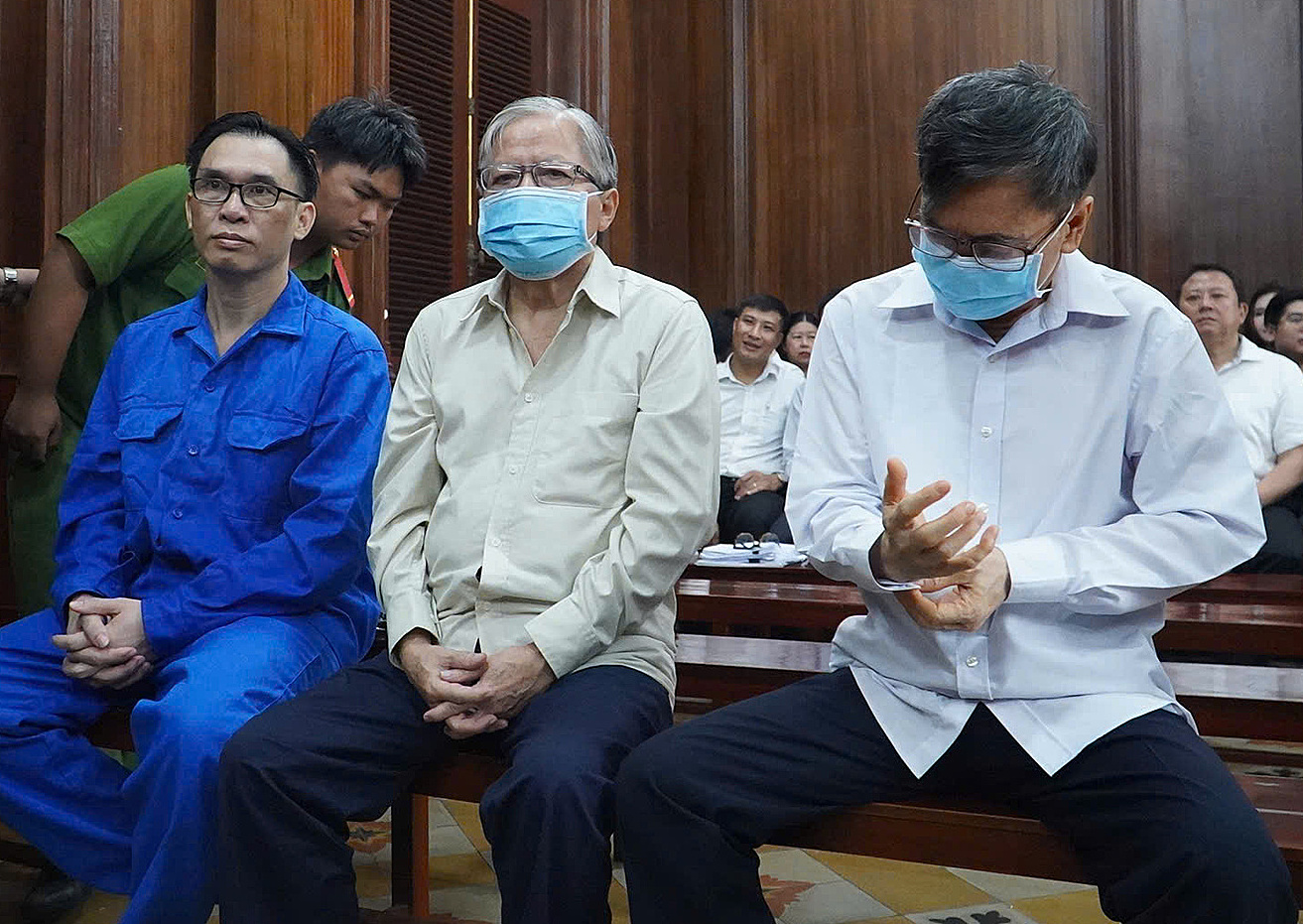 |
Huynh The Nang (right) and Nguyen Tho Tri at the trial. Photo: Hai Duyen |
Huynh The Nang (right) and Nguyen Tho Tri at the trial. Photo: Hai Duyen
During the trial, Chinh claimed Hong had business activities abroad and contacted him to acquire the stake. He also asserted that Hong handled the sale of the 4 properties. However, investigations revealed Hong lacked the financial capacity to purchase 99% of Viet Han Company's 792 billion VND stake in Viet Han Saigon Company. Her brother also stated, "My sister faced financial difficulties and had no business activities."
The prosecution argued that Chinh used Hong as an intermediary in the land transfer, manipulating individuals to bypass the auction process and gain illegal profits.
The 792 billion VND from the capital transfer agreement was not paid immediately as agreed. On 5/2/2016 and 15/2/2016, after Hong had left the country, the 1,683 billion VND transferred by Winter Company was used to settle the payment through 9 pre-signed, blank payment orders. After finalizing the land transfer, Hong also signed several blank payment orders and cash withdrawal slips before departing.
The investigative agency has separated the actions of Hong and several other individuals for further investigation and processing.
The People's Procuracy proposed a sentence of 13 to 14 years for Chinh for "violating regulations on the management and use of state assets, causing loss and waste," and demanded he return the 970 billion VND in illicit profits.
Regarding Nang, the prosecution acknowledged he knew the land should be auctioned but still conspired with Chinh for an illegal transfer through capital contribution and divestment. However, due to his lack of personal gain and his honest confession, the prosecution suggested a sentence of 9 to 10 years.
For his role in assisting Nang, Nguyen Tho Tri (former deputy general director of Vinafood II) faces a proposed sentence of 6 to 7 years.
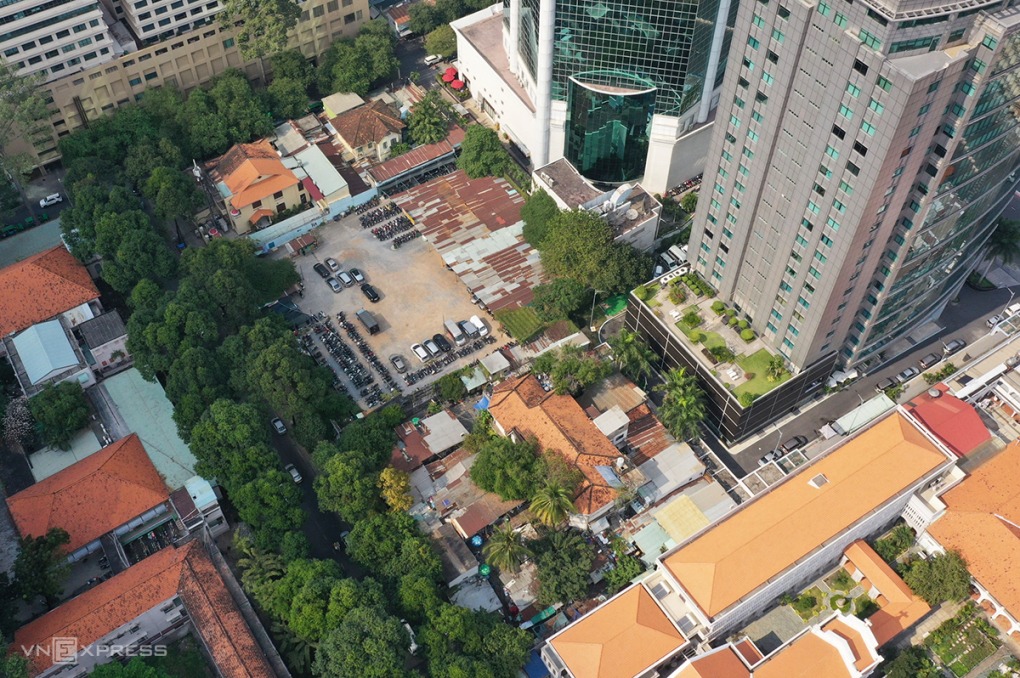 |
The nearly 6,300 m2 plot of land on Nguyen Du and Chu Manh Trinh streets, District 1. Photo: Quynh Tran. |
The nearly 6,300 m2 plot of land on Nguyen Du and Chu Manh Trinh streets, District 1. Photo: Quynh Tran.
Nang and Tri previously admitted their wrongdoing but denied personal gain, attributing their actions to the "context of performing their duties" at Vinafood II.
In his final statement, the former general director of Vinafood II explained he had no experience in business or economics. However, in 2014, he was entrusted by the government to manage the company's operations. He claimed the company faced numerous difficulties and debts from the previous administration. He accepted that the circumstances surrounding the company's equitization led to actions deemed illegal. However, he asserted he felt "no shame before himself and his family" for his actions, requesting leniency from the court due to his age and health.
After 3 days, the trial panel adjourned for further deliberation, with the verdict expected on 25/9.
Hai Duyen



